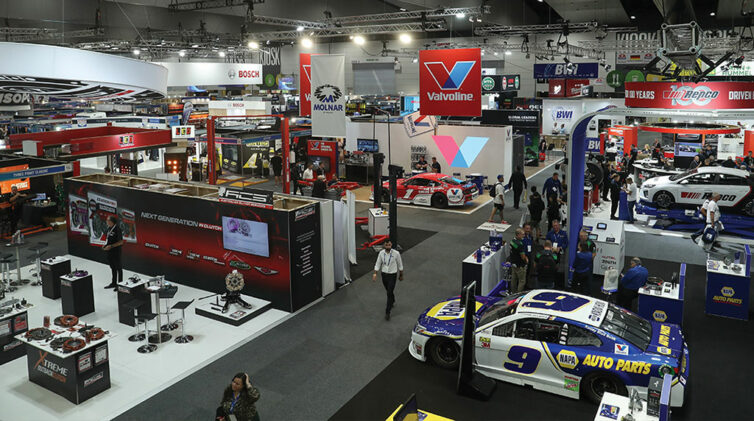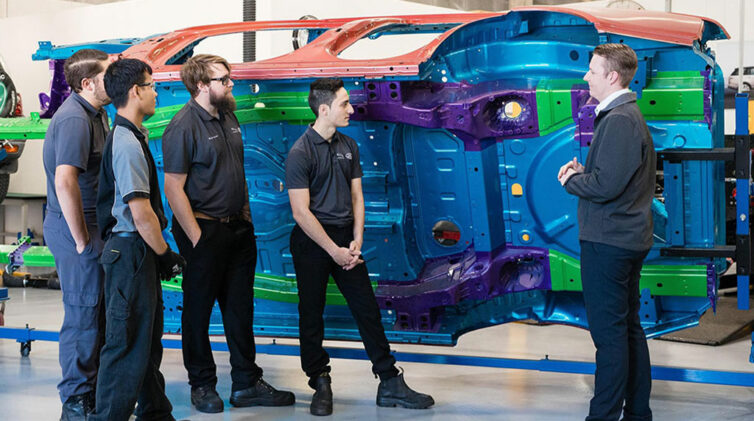Today’s manufacturing shut-down comes two-and-a-half weeks before GM Holden closes its assembly line in Elizabeth, South Australia, effectively bringing to an end to vehicle mass production in Australia.
Acting federal minister for industry Michaelia Cash said the government had been providing ongoing support for workers, businesses and communities during the transition away from automotive manufacturing and added that the government was “acutely aware” of the concern that the closure will bring to those impacted.
“This is why the government has been proactively implementing policies and making significant investments over several years to ensure auto workers are reskilled, supply chain firms diversify and regions can adjust into new areas of the economy,” she said in a media release.
Minister Cash highlighted the government’s recent investment into manufacturing in Australia, such as the 2017-18 Budget that included “significant new investment in manufacturing industries and cutting-edge research infrastructure”, as well as the support the government is providing to affected people.
“Support is in place for Toyota workers and employees from affected supply chain companies, through initiatives like the Growth Fund, access to intensive employment assistance through jobactive, and access to state government programs,” she said.

Happier times: Former Toyota Australia president Max Yasuda (left) and shadow industry minister Kim Carr at the Camry Hybrid launch in 2010.
“The government has worked with employers, employment service providers, local communities and all levels of government to help promote local employment opportunities for retrenched automotive workers.”
A joint statement from federal opposition leader Bill Shorten and shadow industry minister Kim Carr described today as a “sad day” for the affected workers and their families – and for Australia –and placed blame for the closure of the industry squarely on the Abbott and Turnbull coalition government.
“Today is just the tip of the iceberg when it comes to the impact of the shutdown of Australia’s automotive industry,” the statement read.
“Modelling by the University of Adelaide estimates that up to 200,000 jobs are at risk across the economy following the shutdown of this industry, with a $29 billion annual hit to GDP.
“The shut-downs mean that motor vehicle production in Australia will cease after almost 70 years. The loss of an entire industry that is crucial to the wider economy is unprecedented.
“This disaster did not have to happen. The car-makers are closing because the Liberal government goaded them to leave, not because the industry was unviable.
“The Liberal government’s decision was an act of economic vandalism, which will cost Australian taxpayers far more than it would have cost to keep the car-makers here.
“Other countries, including the US, Germany and Sweden, contribute much more than Australia per capita to their car industries.”

Victorian industry minister Wade Noonan also took aim at the federal Liberal-National government and talked up the Andrew’s state government’s support of the automotive industry “The Turnbull government’s decision to push vehicle manufacturing offshore by closing local plants has been devastating for Victorian jobs,” he said in a statement.
“At a time when these workers need certainty, the Commonwealth is missing in action.
“Labor has always supported automotive manufacturing in Victoria and we are doing all we can to help workers, businesses, and communities transition through this very difficult period.
“The Andrews Labor government has invested more than $100 million in targeted assistance for the automotive and manufacturing industries.”
Australian Manufacturing Workers’ Union (AMWU) national vehicle division secretary Dave Smith said Toyota’s closure was a blow to the workers, adding that the end of local manufacturing was a waste of skills and specialist expertise.
“These jobs have provided a stable secure income upon which these workers, their families and communities have built their lives, particularly for generations of migrants who found work and a home in Australia,” he said.
“The average auto worker has been in their job for 19 years. In what other industries do you find workers with such long-term secure jobs?“But they are now facing an insecure future thanks to a federal government that isn’t investing in local jobs.
“Not only that, but the combined decades of experience and skills developed by these workers over years risks being thrown on the scrap heap without serious investment in manufacturing jobs throughout the state and country,” he said.
Federal Chamber of Automotive Industries (FCAI) chief executive Tony Weber said the closure would be “an emotional and difficult day for the manufacturing employees”, and praised how Toyota Australia had handled its transition to a full-line importing business.
“This closure is the culmination of a decision made several years ago. Toyota Australia has been managing the closure process and the transition in a careful, thorough and respectful way,” Mr Weber said.
“Despite the loss of Toyota as a local manufacturer, Australia’s motor vehicle industry remains vital and dynamic, employing more than 65,000 people and providing a value-added impact to the Australian economy of some $17.5 billion per annum.”
By Tim Nicholson













 Read More: Related articles
Read More: Related articles

